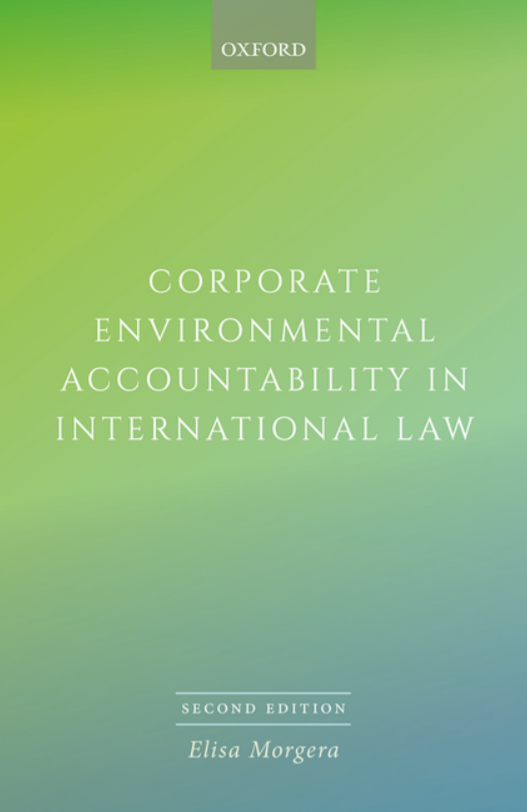Prof Morgera’s second edition of Corporate Environmental Accountability in International Law (open access)

Professor Elisa Morgera
Prof Elisa Morgera has published a new edition of her book analysing the latest international developments on business responsibility to respect environmental rights, which is available for free download here.
The book illustrates that more work is needed to develop international standards of corporate environmental accountability and responsibility for ocean conservation and the sustainable use of marine resources. In addition, some of key findings of the book are implicitly relevant in the context of the blue economy:
- international standards have been developed to provide benchmarks for the private sector to give sufficient consideration to environmental sustainability issues in decision-making processes with a view to preventing environmental harm and negative impacts on human rights;
- international standards have also translated procedural environmental rights (public access to information, public participation in decision-making, and access to justice) into benchmarks of conduct for the private sector, thereby contributing to clarifying businesses’ due diligence to respect human rights in relation to environmental risks;
- substantive standards have more recently emerged internationally, in relation to the biodiversity conservation, the sustainable use of freshwater, the responsible management of chemicals, waste minimizaton, and climate change mitigation;
- substantive standards have also emerged internationally to ensure that businesses respect indigenous peoples’ human rights to natural resources.
While there is a significant degree of convergence between all these international standards, remaining divergence points to particularly controversial concepts in international law, such as the assessment of cumulative environmental impacts, precaution in the face of scientific uncertainty, and the need to seek the free prior informed consent of indigenous peoples, to name a few examples. And there is still a need to provide further details for international standards on business and climate change, the use of traditional knowledge of indigenous peoples, women’s and children’s human rights, and the transfer of technology.
The importance of these international standards is that they can serve to guide States’ regulatory, implementation, and monitoring efforts; and inform judicial practice. They can also be used proactively to back up the claims of victims of corporate abuses in advocacy initiatives. These standards can also guide legal advisory services to private companies, and be included in legal education.
